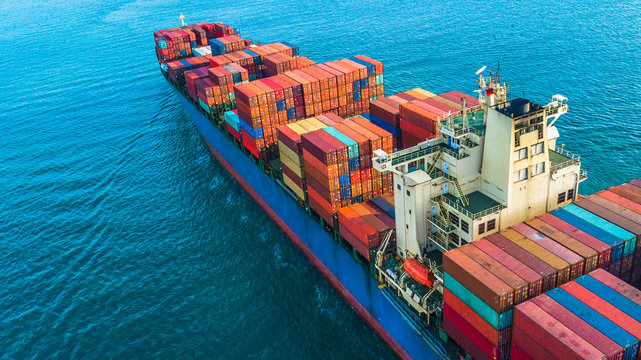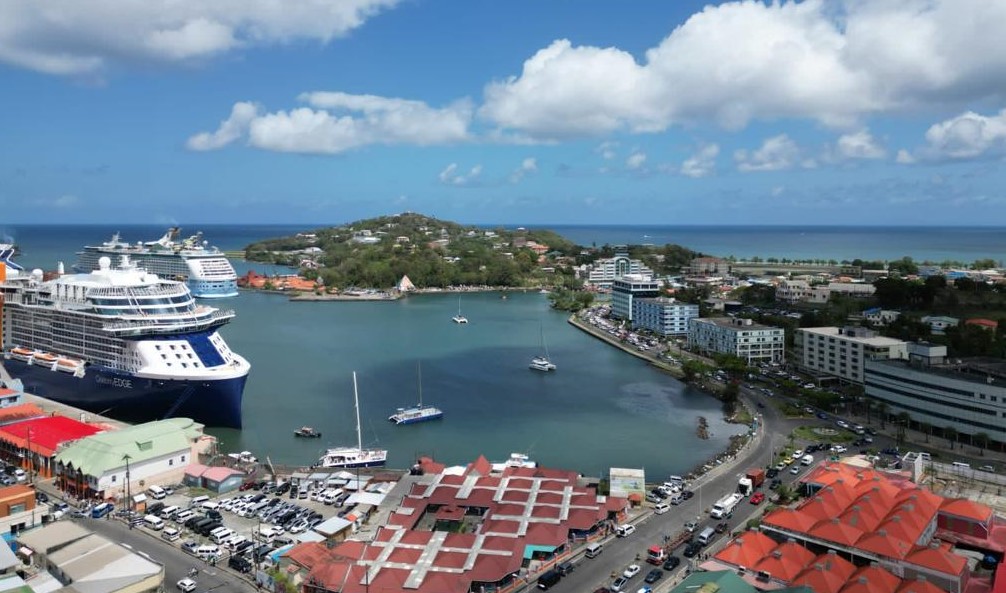A global plan to reduce greenhouse gas emissions from the shipping industry has hit turbulent waters after the United States and Saudi Arabia led a successful push to delay the adoption of the International Maritime Organisation’s (IMO) Net-Zero Framework (NZF) — a landmark initiative that sought to make maritime trade cleaner and more sustainable.
The IMO Net-Zero Framework was designed as a key step in the United Nations’ efforts to tackle climate change by targeting one of the world’s most polluting sectors — global shipping. If adopted, the framework would have required vessels to drastically cut emissions by switching from fossil fuels to greener alternatives such as renewable energy-based fuels and wind-powered systems.
The framework also proposed a pricing system for shipping emissions, often described as a carbon levy, which would have encouraged investment in cleaner technologies while funding climate adaptation in developing nations, including Small Island Developing States (SIDS) like Saint Lucia.

A sudden shift in course
The measure was expected to pass easily during the Marine Environment Protection Committee (MEPC)’s meeting in October, following months of negotiations and a breakthrough in April 2025. However, optimism faded when the United States’ White House issued a public statement on October 10, calling the proposed emissions pricing “an unsanctioned global tax regime” that would place “unfair burdens on shipping and the American people.”
The United States’ rejection of the proposal prompted immediate reactions from other major players. The European Union reiterated its support for the deal, while the IMO’s Secretary General Arsenio Dominguez urged countries to act “in good faith” and maintain a united front in combating climate change.
But behind closed doors at the IMO’s London headquarters, negotiations began to unravel. With Saudi Arabia and Russia joining the US in opposition, the once strong coalition in favour of the deal began to splinter.
In a surprise move, Saudi Arabia proposed an adjournment of the meeting for one year, effectively halting progress on the framework. The motion passed with 57 countries voting in favour, 49 opposing, and 21 abstaining.
The decision means the framework, and any formal commitment to reducing shipping emissions, will now be delayed until at least October 2026, when the committee reconvenes.

Island nations left at anchor
The postponement has significant implications for small island nations that are already facing the brunt of climate change. St. Lucia Times understands that the majority of SIDS had initially expressed support for the framework, viewing it as an important step towards securing climate financing and promoting sustainable maritime trade. However, following opposition from major economies, some island states reportedly backed away from endorsing the deal amid uncertainty over its financial implications.
Neighbouring St Vincent and the Grenadines publicly confirmed its decision not to support the proposed framework. Prime Minister Ralph Gonsalves argued that while his country remains committed to tackling climate change, the proposed measures could place additional strain on small, import-dependent economies.
“While we are committed to addressing climate change, international regulations must recognise the unique vulnerabilities of economies like ours,” Gonsalves said, warning that compliance penalties and increased shipping costs could ultimately “be transferred to consumers, potentially destabilising fragile economic ecosystems.”
The Bahamas and Antigua and Barbuda, both of which agreed to the deal’s terms in April, were two countries that abstained
For Saint Lucia, the government’s official position on the matter remains unclear. However, regional observers note that small island nations are often placed in difficult positions during such global negotiations. They are forced to balance their commitment to climate action with the economic realities of their dependence on maritime imports and exports.
Charting the next course
Although the NZF has been delayed, work on its technical guidelines will continue later this month when the IMO’s Intersessional Working Group on Greenhouse Gas Emissions meets to refine the framework’s implementation strategies.
Climate policy experts say that while the adjournment represents a setback, the year-long pause could allow for renewed dialogue between developed and developing nations — provided that consensus remains the ultimate goal.
For the Caribbean, and for Saint Lucia in particular, the delay highlights a familiar challenge: the struggle to have the voices of small and climate-vulnerable nations heard in global decision-making arenas.
As one regional delegate at the IMO reportedly observed, the question is no longer whether the world needs a shipping emissions framework — but whether global politics will allow it to set sail.



